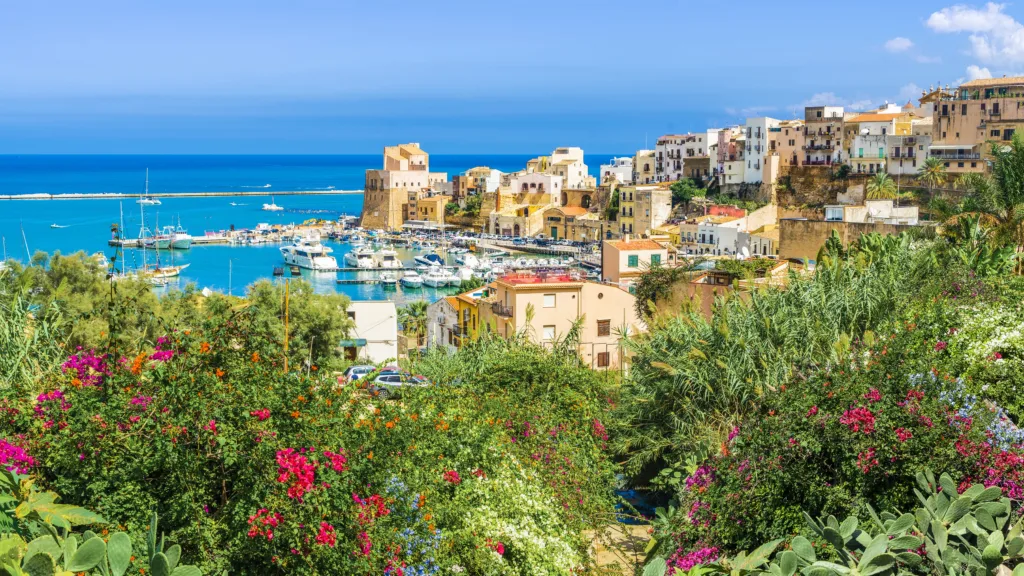Sicily, the largest island in the Mediterranean Sea and one of the 20 regions of Italy, has a rich and diverse history, culture, and language. Despite being part of Italy, Sicily is an autonomous region with its own distinct identity.
Sicilian language, which is diferent from Italian, shares the same fundamentals as other romance languages such as French, Spanish, or Portuguese. The Sicilian grammar has a closer relation to Spanish grammar, and it has its own unique vocabulary and pronunciation.
Throughout history, Sicily has had a tumultuous past, from being ruled by Greeks, Romans, and Arabs, to being part of a revolt led by Guiseppe Garibaldi in 1860, which ultimately led to a unified Italy. Despite this, Sicily still maintains its own culture and traditions.
In 1946, Sicily became an autonomous region of Italy, giving it more control over its own affairs and allowing it to preserve its unique identity. Sicilians have their own beliefs and ways of life, which are reflected in their cuisine, music, and festivals.
Sicilian cuisine is famous for its fresh seafood, pasta dishes, and sweet desserts such as cannoli and cassata. Sicily is also known for its wine production, with the region producing some of Italy’s most famous wines.
Music is also an important part of Sicilian culture, with traditional instruments such as the mandolin and accordion being widely used in folk music. Festivals such as the Feast of Saint Agatha and the Infiorata di Noto, where intricate flower designs are created on the streets, are popular events that showcase Sicilian culture.
Although Sicily is part of Italy, it has its own unique culture, language, and history, making it an autonomous region with its own distinct identity. Its rich and diverse past has shaped its traditions and way of life, which are reflected in its cuisine, music, and festivals. Sicily is truly a special part of Italy and the Mediterranean.
Is Sicily A City Or A Country?
Sicily is neither a city nor a country. It is an island located in the Mediterranean Sea, and it is the largest island in the region. Sicily is a part of Italy and is also considered as one of the 20 regions of the country. The island has its own unique culture, history, and traditions that set it apart from the rest of Italy. Sicily is home to several cities, including Palermo, Catania, and Messina, among others. These cities are administrative centers of the region and have their own distinct characteristics. Therefore, it is incorrect to refer to Sicily as a city or a country, but rather as a region within Italy that has its own distinct identity.

Are Italian And Sicilian The Same?
Italian and Sicilian are not the same language. While both languages belong to the Romance language family, they have distinct differences in terms of grammar, vocabulary, and pronunciation. Italian is the official language of Italy and is widely spoken throughout the country, while Sicilian is a regional language primarily spoken in Sicily and parts of southern Italy.
Sicilian has been influenced by various languages throughout history, including Greek, Arabic, and Spanish, whih has resulted in a unique dialect. In terms of grammar, Sicilian has retained some features of medieval Latin that are not present in Italian. For example, Sicilian has preserved the use of the subjunctive mood, while Italian has largely abandoned it.
Vocabulary is also a notable difference between the two languages. Sicilian has a significant amount of vocabulary that is not present in Italian, and vice versa. Sicilian also tends to use more archaic words and expressions in comparison to Italian.
Lastly, pronunciation is another key difference between the two languages. Sicilian has a distinct pronunciation that differs from Italian, with a tendency to stress the second to last syllable in words. In contrast, Italian stresses the penultimate syllable, and the pronunciation of certain letters, such as “c” and “g,” varies between the two languages.
While Italian and Sicilian share some similarities, they are distinct languages with their own unique features.
When Did Sicily Become Italy?
Sicily became part of Italy in 1860 as a result of a revolt led by Guiseppe Garibaldi that aimed to unify the country. Prior to this, Sicily had a tumultuous history, having been ruled by various foreign powers throughout the centuries. After the unification of Italy, Sicily became an autonomous region in 1946, which is the position it occupies today. It is worth noting that the unification of Italy was a complex process that involved various political, social, and economic factors, and it took several decades to complete.
How Is Sicily Different From Italy?
Sicily is an autonomous region in Italy and the largest island in the Mediterranean Sea. Although it is a part of Italy, it has its own distinct culture and way of life. Here are some of the key differences between Sicily and Italy:
1. Language: While Italian is the official language of Italy, Sicilian is also widely spoken in Sicily. Sicilian is a distinct dialect that has developed over the centuries and is different from standard Italian.
2. Cuisine: Sicilian cuisine is different from Italian cuisine. Sicilian food is characterized by a mix of Arabic, Greek, and Spanish influences. Some of the popular dishes in Sicily include pasta alla Norma, arancini, and cannoli.
3. History: Sicily has a rich and complex history that is different from the rest of Italy. It has been ruled by vaious civilizations including the Greeks, Romans, Arabs, and Normans. This has resulted in a unique blend of cultures and traditions in Sicily.
4. Geography: Sicily is an island, which means that its geography is different from mainland Italy. It has a varied landscape that includes mountains, beaches, and vineyards.
5. Festivals: Sicily has a number of unique festivals and celebrations that are different from those in Italy. These include the Feast of Saint Agatha, which is celebrated in Catania, and the Infiorata of Noto, which is a flower festival that takes place in May.
Sicily is different from Italy in terms of language, cuisine, history, geography, and festivals. Despite being a part of Italy, it has its own distinct culture that sets it apart from the rest of the country.

Conclusion
Sicily is a fascinating region with a rich and diverse history. As the largest island in the Mediterranean Sea, it is known for its stunning natural beauty, vibrant culture, and delicious cuisine. While it is part of Italy, Sicily has its own unique identity and language, which is distinct from Italian. Through its tumultuous past, Sicily has emerged as an autonomous region with a strong sense of pride and independence. Whether you are interested in history, art, food, or simply want to relax on beautiful beaches, Sicily has somehing for everyone. It is truly a must-visit destination for anyone looking to experience the best of Italy and the Mediterranean.
